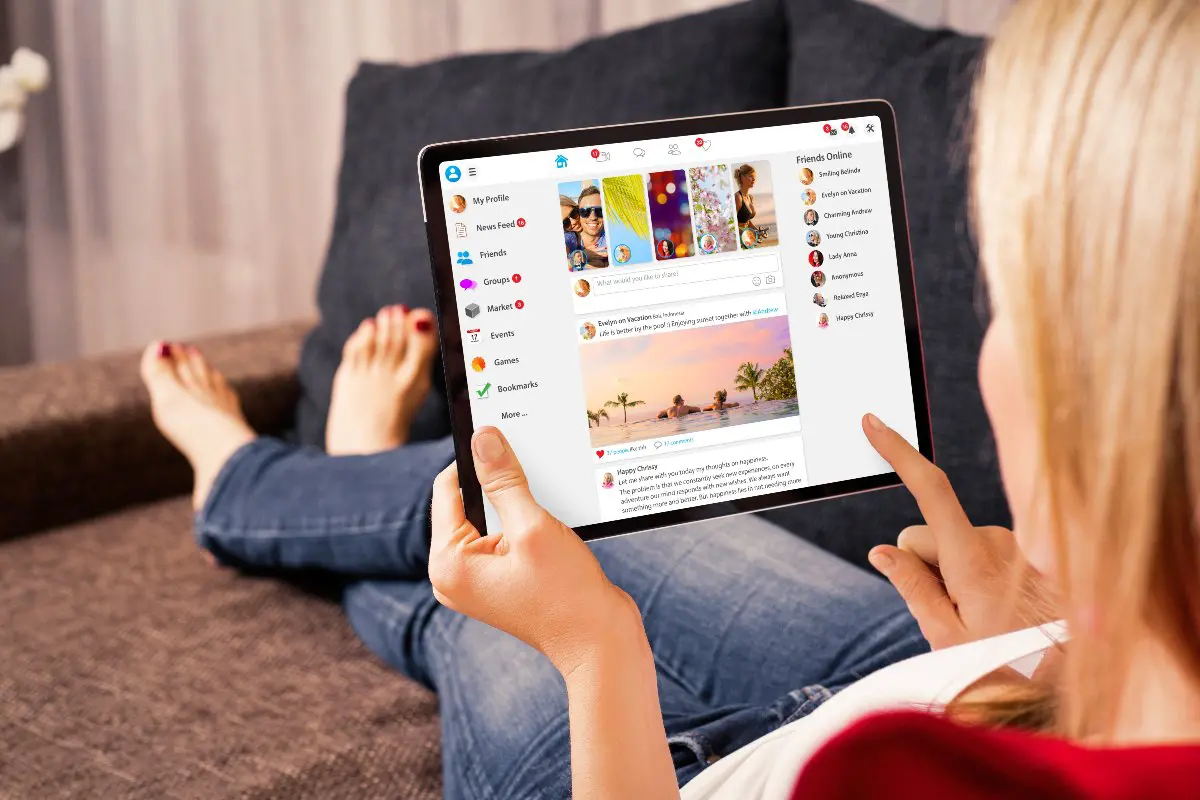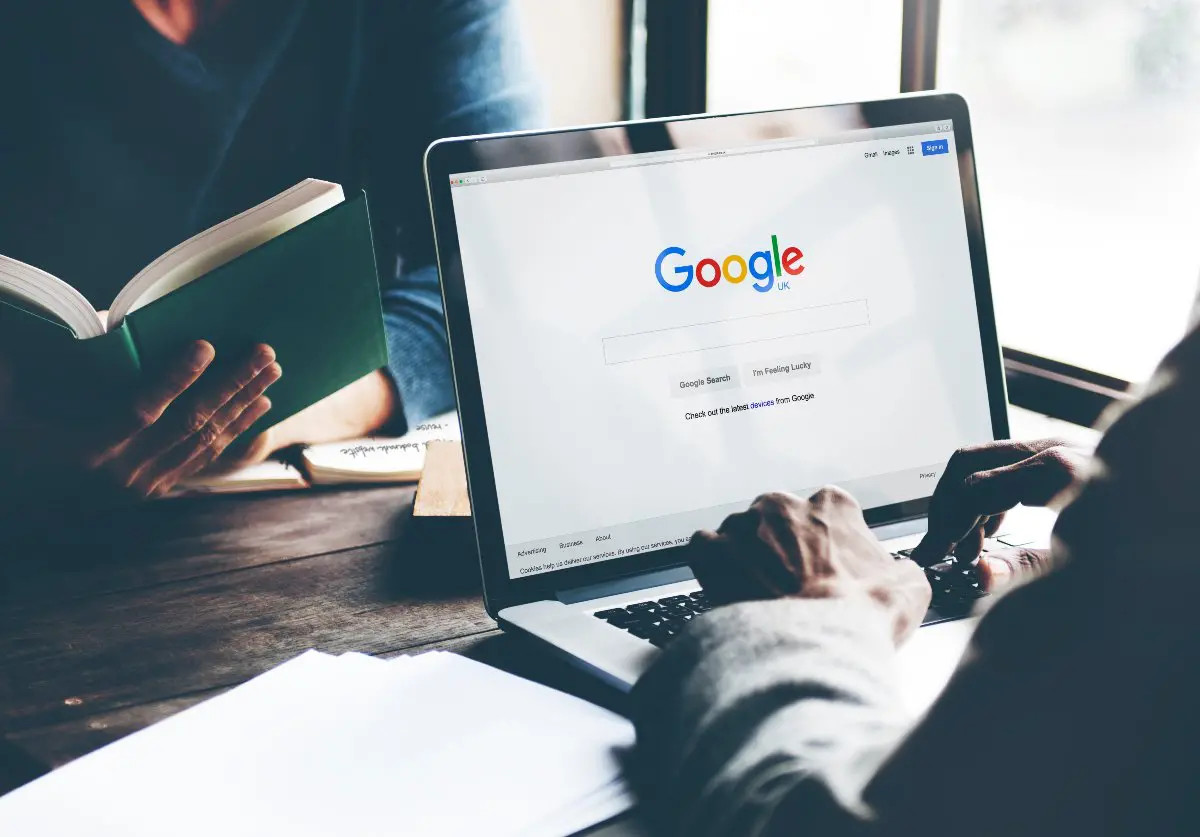As far as digital advertising goes, Google and Facebook are kings of the roost.
There are billions of people on both platforms, and both have vast data collection techniques that let marketers target their advertising to the right people.
Facebook and Google Ads both offer large audiences and strong targeting options, but when you have a limited advertising budget, it might be tough to pick between the two.
When asking, “Which platform should I use?” consider your objectives and budget. Both options offer great digital advertising benefits, but it is best to evaluate your specific needs to choose the right platform.
Here are a few things to help you answer: Facebook vs. Google Ads?
What are Facebook Ads?

Facebook is a social media network for both individuals and companies, and about 1.6 billion people across the globe are linked to a small company on Facebook.
Ad campaigns may be created and managed using the Facebook Ads Manager tool. These ads can be customized to appeal to consumers based on their geography, profile information, and demographics. Additionally, advertisements can be run on Facebook, Instagram, Messenger, and the Audience Network. Lastly, Facebook ad reach can be tracked online through your mobile or desktop device.
As a result, Facebook Ads allows you to estimate and evaluate the success of your ad campaigns according to your company requirements.
Benefits of Facebook Ads
Facebook is used by billions of individuals every day; thus, your chances of reaching them increase dramatically. Facebook also offers:
- Easy-to-use site
- Email marketing
- Organic social media linking
- Search Engine Op
- Increased brand recognition and awareness
- Lead generation
- Improved content reach
- Event awareness
Here are some other important Facebook ad perks to know:
Facebook’s Ads Platform Has Strong Analytics
Facebook provides you unlimited access to ad performance statistics and analytics. Never presume or make assumptions about what works and what doesn’t. Instead of needing to calculate conversion rates and other social data, Ads Manager will do it for you. Analyze them and decide what to do next.
You will receive weekly data regarding your reach, post interactions, page likes, and post-performance. Additionally, Facebook offers insight into clicks, conversions, and purchases.
Target a Specific Audience
Facebook’s targeting abilities are excellent when it comes to granularity — the level of detail considered in a decision-making process. Through Facebook, you can target people depending on their interests or habits by combining targeting features. As a result, you ensure that you focus on users who have a high likelihood of purchasing your goods or services.
Customize Ads to Meet Your Goals

Facebook offers easy ways to create an ad. It walks you through selecting the ad kind, audience, period, and budget.
The ad may also be tailored to your specific goals. Facebook calls them “objectives.” For example, you may target post engagement, website clicks, or page likes.
This gives you more power over what you aim to achieve through your ads. It also teaches Facebook how to optimize your ads for the greatest results.
Disadvantages of Facebook Ads
After we talked about the benefits, let us discuss the disadvantages of Facebook ads.
Organic Reach Is Decreasing
If you manage a business page, you may not know that just a small percentage of your followers view your posts.
Facebook has been reducing the appearance of company pages in news feeds for some years now, irritating business owners worldwide. They will prioritize postings from friends and family more often, thus pushing company sites to the back burner.
As a result, if you want to push your posts higher in the feed, you may choose to utilize Facebook advertising. This can be an added expense in an already tight budget.
Misreporting of Some Metrics
Over the years, Facebook has been chastised for publishing stats that aren’t necessarily accurate. Overreporting or exaggerating data has been a problem that primarily benefits Facebook. For example,
- The video play metric is over-reported.
- Metrics for instant articles are occasionally provided incorrectly.
- Metrics for app referrals have been miscalculated
- The organic reach isn’t stated appropriately since repeat visits aren’t deleted.
Money Is Everything
You want to get your material in front of your audience’s eyes, but who will pay for it? Unfortunately, Facebook is sometimes for the wealthiest. If you want your material to be viewed, you’ll need a sizable budget to promote it to your desired audiences.
What are Google Ads?

Google Ads is a pay-per-click service. Marketers can target certain keywords on Google. This is done by bidding on specific keywords.
A maximum bid is the most you’re willing to spend for an ad to appear in the search results. You may also select a daily maximum budget for your ad. You’ll never pay more than a certain amount every day on that ad, helping you budget for your digital ad campaigns.
Marketers can make three bids:
- Cost-per-click (CPC). What you pay when someone clicks on your ad.
- Cost-per-mille (CPM). The cost per 1,000 ad impressions.
- Cost-per-engagement (CPE). How much do you spend when a user reacts to your ad, such as signing up for a list or watching a video?
Your website or online business may benefit greatly from using Google advertisements, particularly when the chosen keywords demonstrate a potential customer’s intent to buy.
Benefits of Google Ads
Here are some of the most important advantages of Google Ads, with one of the biggest being able to target your ads to certain demographics and locations:
Targeting allows you to offer relevant adverts to those who have shown interest in your goods or services.
Side note: Here are some options for creating successfully targeted Google ads:
- Include terms or phrases related to your goods or services. Your ads may appear in the search results when consumers search for the related keywords.
- Define your consumers’ age, region, and language.
- Display your adverts at certain times and days of the week.
- Choose the types of devices your ads appear on.
Budgeting is Essential
Your money is in your hands with Google Ads. There isn’t any minimum. There are a variety of options to pick from, including how much you want to pay monthly, daily, and per individual ad.
It’s Important to Keep Tabs on Your Progress
Google Ads offers a wide range of analytical tools to monitor your performance. For example, you can track your clicks, purchases, downloads, and orders. Additionally, you can check which advertisements are generating the most clicks. Lastly, Google Ads helps you understand consumer purchasing behavior by allowing you to see how long customers spend researching your goods before making a purchase.
Keep an Eye on Your Marketing Efforts

In addition, Google Ads provides you with a wide range of management and monitoring options.
A My Client Center (MCC) manager account might save you a lot of time if you handle many Google Ads accounts. All your Google Ads accounts can be seen and managed in one place.
Google Ads Editor, a free, downloadable desktop tool, enables you to make changes quickly and easily to your account without logging in to your Google Ads account. Instead, edit your campaigns offline with the help of Google Ads Editor before re-uploading them. Additionally, Google Ads Editor allows you to manage and view multiple accounts. You can then copy and transfer objects across ad groups and campaigns, as well as undo and redo changes to several accounts.
Disadvantages of Google Ads
And now let’s talk about the cons of Google Ads.
Miss Your Intended Audience
There are two sorts of keywords you may bid on while searching for information online:
- General keywords
- Long-tail keywords
There are negatives to both these approaches. Using general keywords will likely reduce your return on investment due to competition. Targeting general keywords that are oversaturated with ads may not produce the conversion rates or clicks needed to justify the expense.
Conversely, choosing more specific, long-tail keywords may also be too limiting. Long-tail keywords have less traffic due to the specificity of the phrasing. As a result, you may risk missing out on prospective consumers who don’t Google the way you assumed.
Must Operate in a Reactive Rather Than Proactive Manner
Google makes it possible to track your metrics by offering detailed information regarding:
- Visit time
- Visitor’s origin and device
- Conversion rates
- Pageviews
However, these analytics are only provided after running an ad campaign. Ultimately, this is ineffective as you can end up wasting your limited budget on advertising that must be updated and reimplemented for an additional cost.
The Necessary Labor
It’s simple to set up an AdWords campaign. However, AdWords is a tool that requires proper setup to be effective.
To get all of the specifics of your campaign exactly perfect and avoid squandering your money, you may want the assistance of some specialists. At the end of the day, this is an additional cost to your already small budget.
Moreover, AdWords campaigns also need consistent updates and maintenance to maximize effectiveness. Upkeep and management involve:
- Analyzing your metrics based on your targeted objectives
- Removing terms that are not receiving clicks or conversions
- Editing, remaking, or removing underperforming campaigns
- Repeating the aforementioned actions multiple times a week
What To Consider When Choosing Between the Two?

Facebook and Google Ads are complementary, each providing specific advantages to businesses.
If your team can only concentrate on one, consider the following:
What Is Your Objective?
What do you want to achieve? Is it brand awareness, leads, or sales? This response might help you choose between the two options.
Google Ads is perfect for capturing demand — contacting highly motivated buyers. For example, Googling “water bottle” may indicate a desire to buy one.
Google Ads is a great way to generate leads. Properly configured campaigns can drive highly targeted traffic to your website, opt-in form, or other online business. It lets you target those who are looking for what you offer. This means you can keep refining your searches to send only qualified buyers to your websites.
However, Facebook Ads are perfect for targeting people to promote brand and product awareness. Facebook advertisements can help branding efforts by driving traffic to core content pages, including:
- Blogs
- Social media
- Ad copy
- Landing pages
- Homepages
In turn, Facebook ads can increase site traffic, impressions, and click-through rates (CTR). All these efforts can promote brand awareness and positioning.
Budget
Each marketing campaign aims to maximize your return (ROAS), and some platforms make it easier than others to achieve this.
With Google Ads, you must consider keyword competition and pricing. If you’re targeting expensive keywords and have a limited budget, it may not be the best return on investment.
Assume you have a daily budget of $200. You want to rank for “tool shop” locally, but it costs $20. This implies you receive a maximum of ten clicks every day.
With the same $200 spend, you could potentially reach more individuals on Facebook Ads and test different methods for your target demographic.
It’s all about maximizing your dollar’s impact on your objectives. Using tools like Plat’s ad tracking software may help you track your campaign’s ROI and make modifications to improve results.
Understanding the Stages in the Buyer’s Journey

Additionally, different platforms are more suited to certain phases of the buyer’s journey.
Because Facebook is a social networking site, most users are not actively shopping. They do, however, use the site to discover and discuss their interests. With that in mind, it’s an excellent spot for visitors to discover your brand, particularly if you believe it has little to do with a subject for which users would search.
In comparison, Google is projected to get over five billion queries every day. While these searches may occur at any point of the buyer’s journey, some terms imply a high level of purchase intent.
If I search for “best water bottle” or “water bottle pricing,” for example, this indicates that I am interested in acquiring this item. Marketers may use this strategy to target people towards the bottom of the funnel.
Historical and/or Competitor Data
When developing your next campaign’s playbook, it’s beneficial to use past data to guide your plan. Understanding what has succeeded in the past, what has not, and what remains to be explored may serve as a guide and standard.
If this is your first time running a campaign, have a peek at your competition. Which advertisements are they running? Where are they operating them from? What are their creative assets? What are they communicating?
This competitive intelligence may reveal certain areas of potential and provide insight into the tactics used by your rivals.
Bottom Line: Facebook vs. Google
Facebook Ads and Google Ads are two of the most widely used pay-per-click advertising systems, with marketers paying for each click on their ads. Facebook Ads is a paid social advertising network with advanced audience targeting capabilities, while Google Ads is a paid search advertising platform heavily reliant on Google users’ keyword searches.
As simple as it may seem to produce a basic advertisement, both platforms need a high learning curve to design great advertisements that generate clicks and conversions.
Consider the campaign’s objectives before moving on to further considerations. For example, is it a priority to make as many sales as feasible in the shortest time possible? As a result, Google Ads may be the best option. On the other hand, Facebook Ads may be a better option if you want to expand the company’s brand recognition or reach a larger audience.
Table of Contents
- What are Facebook Ads?
- Benefits of Facebook Ads
- Facebook’s Ads Platform Has Strong Analytics
- Target a Specific Audience
- Customize Ads to Meet Your Goals
- Disadvantages of Facebook Ads
- Organic Reach Is Decreasing
- Misreporting of Some Metrics
- Money Is Everything
- What are Google Ads?
- Benefits of Google Ads
- Budgeting is Essential
- It’s Important to Keep Tabs on Your Progress
- Keep an Eye on Your Marketing Efforts
- Disadvantages of Google Ads
- Miss Your Intended Audience
- Must Operate in a Reactive Rather Than Proactive Manner
- The Necessary Labor
- What To Consider When Choosing Between the Two?
- What Is Your Objective?
- Budget
- Understanding the Stages in the Buyer’s Journey
- Historical and/or Competitor Data
- Bottom Line: Facebook vs. Google
Have a Question? Ask an Expert!
Fill out the form below to get in touch with one of our marketing specialists.
